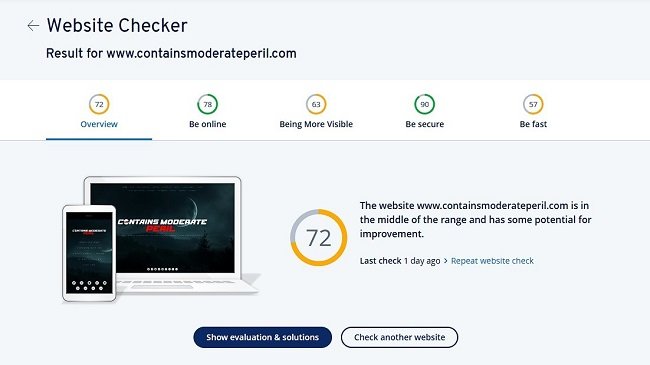Newbie Blogger Initiative 2016 - Should You Allow Comments on Your Blog?
Comments have been an integral part of blogging since it became a popular activity in the late nineties. If you have a self-hosted blog or use one of the many free services, then by default the ability to leave comments is often enabled. Whether you want this option is another matter altogether and one that poses a potential headache for all bloggers. Allowing comments on your site has both pros and cons and as ever it comes down to you as a blogger to make a decision that you are comfortable with. If you are currently pondering this issue, then here are a few things to consider.
Reader feedback:
Bloggers do not thrive in a vacuum and crave feedback. Don't let anyone tell you otherwise. Monitoring your website traffic and statistical data can be of use but comments offer the promise of tangible feedback. Comments can potentially shed light upon whether your writing is being well received or not. Plus everyone likes to have their ego stroked to a varying degree. However the reality can be potentially quite different. Several years ago I posted an article that over a period of a month got read 35,000 times. Yet despite the relatively high level of traffic, it only garnered four comments. Feel free to work that out as a percentage. Plus you often find that a lot of the comments you receive on your site, may not be the kind that you want. I'm not talking about trolling but well-intentioned but ultimately meaningless platitudes. For example a simple "awesome", although complimentary offers no real value or insight.
Starting a dialogue with your readers:
A lot of gaming blogs are centred on discussing ideas and sharing common experiences. Posting an article based around a single question is a great way to start a debate going and attract comments. It presents an opportunity to see alternative points of view, to learn and even make new friends. If you write about MMOs for example, the comments system can act as an extension of the in-game chat. I can think of several well-known fan sites that over a period of time have become the de facto source of information for the games the support. They often play a pivotal role in their particular community. So if you have aspirations to achieve something similar or simply want to have some semblance of a dialogue with your readers then comments are essential.
"Your hide would make a fine Poncho..."
Stating, not debating:
You can write a perfectly effective blog without openly engaging in discussion. Your blog may be a source of data or provide "how to" guides. Or you may want to write a blog where you write an editorial as you see in the newspapers, where you simply state your point of view. Both these approaches don’t necessarily need reader comments and as a writer you may not consider everything you type as being open to or worthy of debate (although there are plenty of people out there who will happily do so). If that is the case, then comments are not essential and your readers will return because they enjoy the benefits of your guides or identify with your persona and particular outlook.
Sticking your head above the parapet:
The moment you write your own thoughts and put them in the public domain, then you are inviting criticism. Some folk just delight in leaving the most poisonous comments for no good reason. Let us not bother cataloguing every sort of comment than may occur. Let it suffice to say that there is plenty of scope for unpleasantness. Plus there is the separate issue of automated spam comments that can plague a website. If you decide to allow comments on your blog then you need to have thick skin. That's actually a lot harder than what you think. Every now and then there'll be one negative comment that really gets under your skin. Remember that you are dealing with gamers and they are not known as being the embodiment of reason or decorum. Also ensure you have some sort of anti-spam plugin that automatically detects bogus comments and deletes them.
Work, work, work:
If you find yourself in the fortunate position of running a blog with a healthy readership, then you may on occasions write a post that provokes a substantial amount of comments. If they are good, then it is wise to respond to them and engage with your readership. If they are bad then you may wish to crush such stupidity with a witty reposte or simply delete them. If you have elected to moderate all comments then you'll have to trawl through them one by one and see if they are suitable. All of these processes require a degree of work and time. As any blogger will tell you, the latter is a finite commodity. Choose wisely.
The esoteric art of generating more comments:
If you do elect to enable comments then you may wish to specifically write material to solicit them. This is fine if done in a sensible and measured fashion. However, like the pursuit of web traffic, this can easily descend into an unhealthy compulsion. The post that tackles a difficult issue and poses a question can be a good thing. The post that just aims to shock, offend or troll for no reason are of no real value. Plus writing like that just paints you into a corner. I find that the best way to encourage comments is to regularly do so yourself on other people’s blogs. Another tip is not to cover every angle of a debate in your post. Always allow scope for further discussion. Give your readers a reason to comment.
With regard to comments, I’m personally happy to allow them. Sure I'd like more but most of those that are left are a positive contribution. Those that aren't I’m still happy to leave. The rude, crass and malicious posts often say far more about the person that left them than anything else. It is also good to remember that your blog is not the same as a forum. Forums are created as specific platforms for public debate. I have always felt that a blog is more like running an open house. Although you have invited people in, there is still an expectation that they will conduct themselves in a civilized fashion. IE wipe their feet and flush the toilet if they use it. Therefore police your blog comments with that in mind, if you see fit to allow them.
Finally, whatever choice you make there is always scope to change it at a later date. It usually just involves checking a tick box in the blog's control panel. So if you have just started out blogging and have just made this decision, I'm very curious to know what choice you made. Feel free to leave a comment.




























